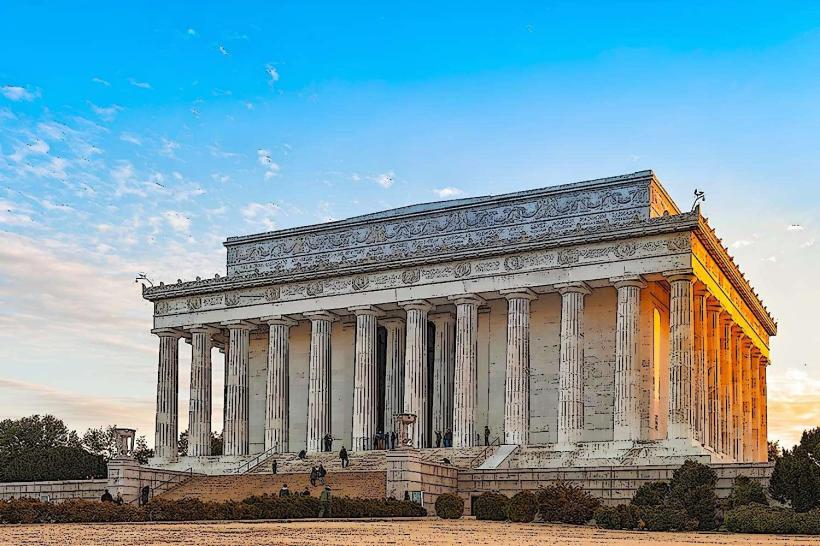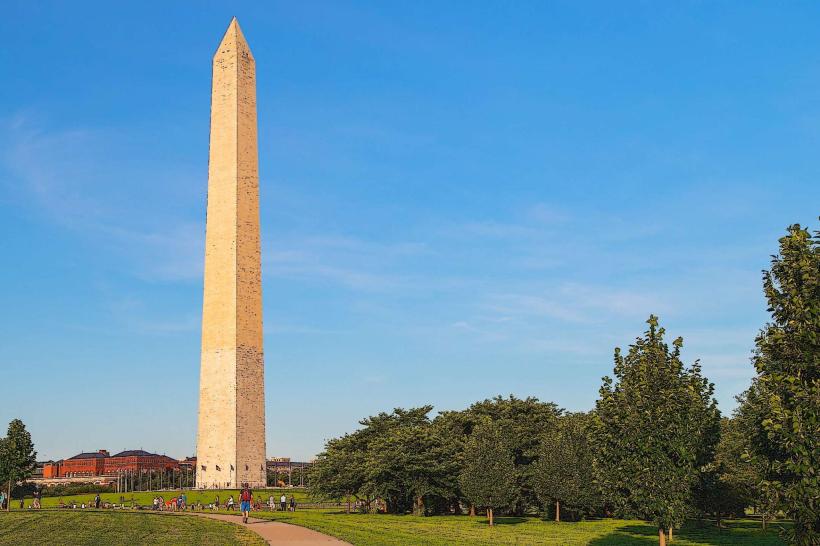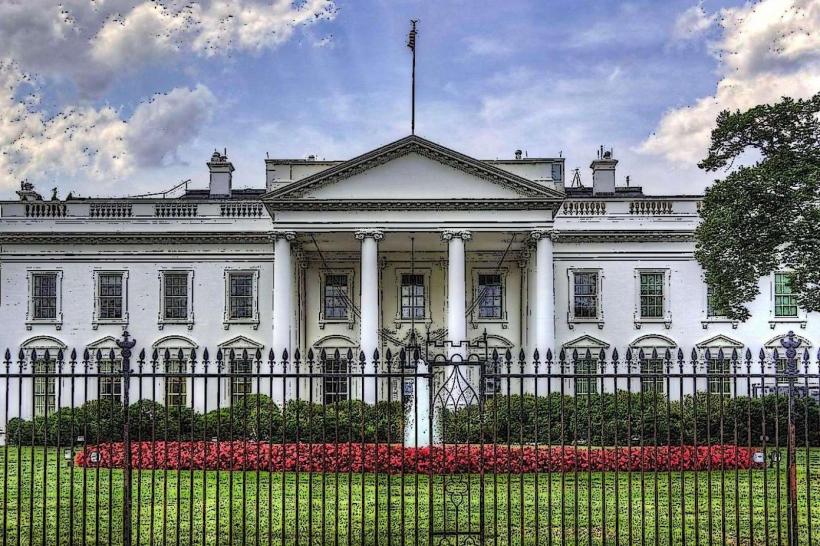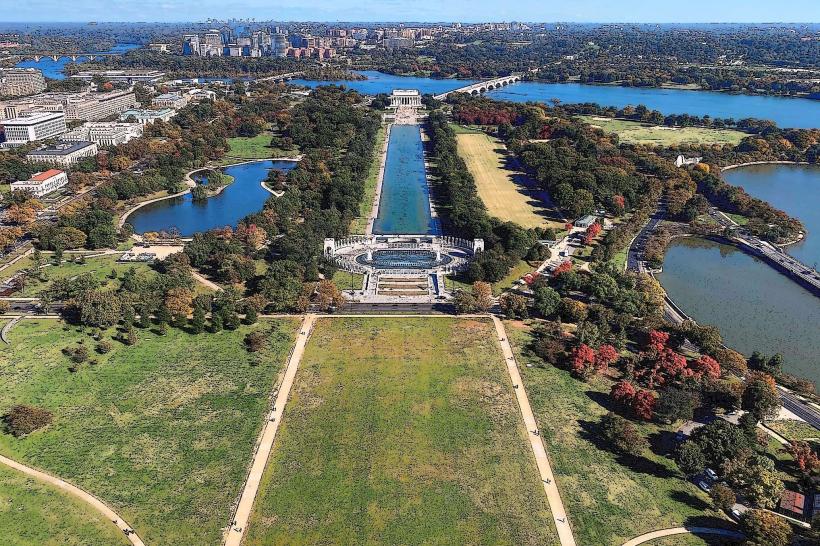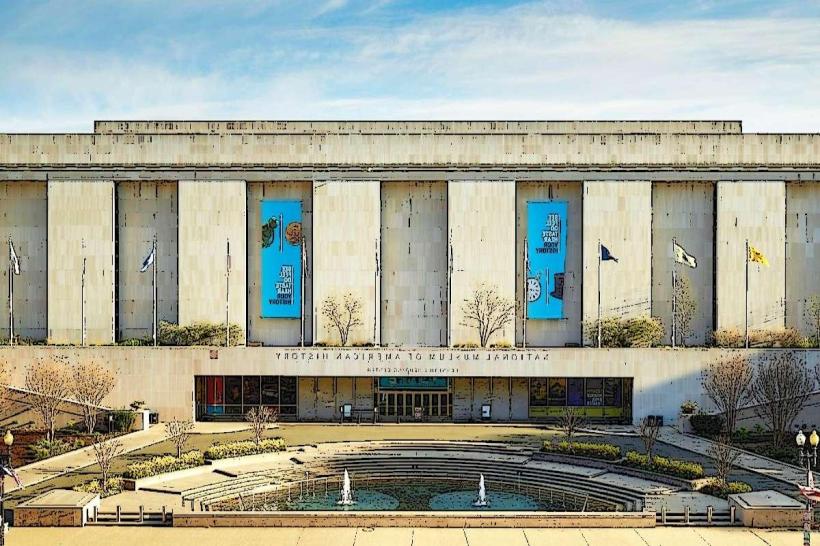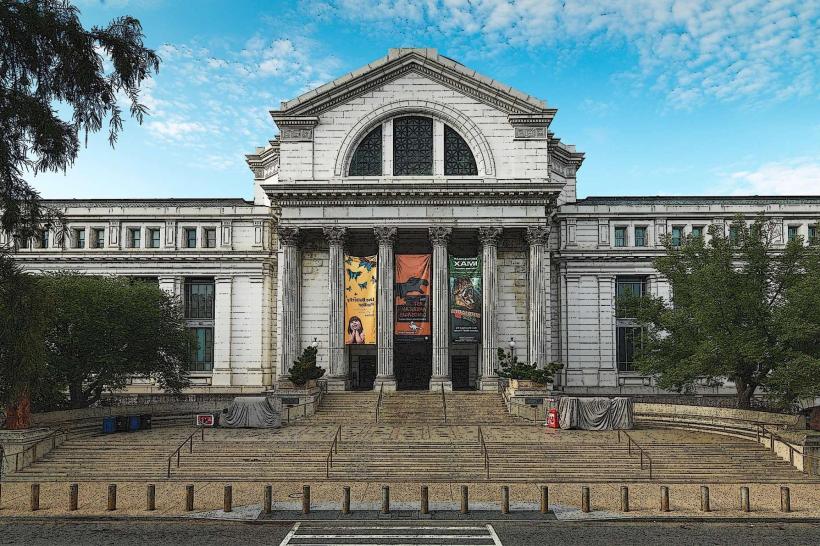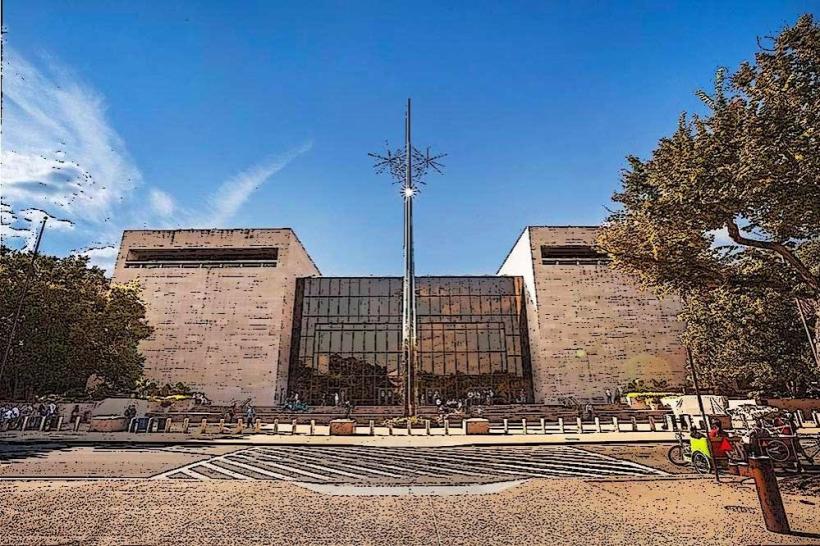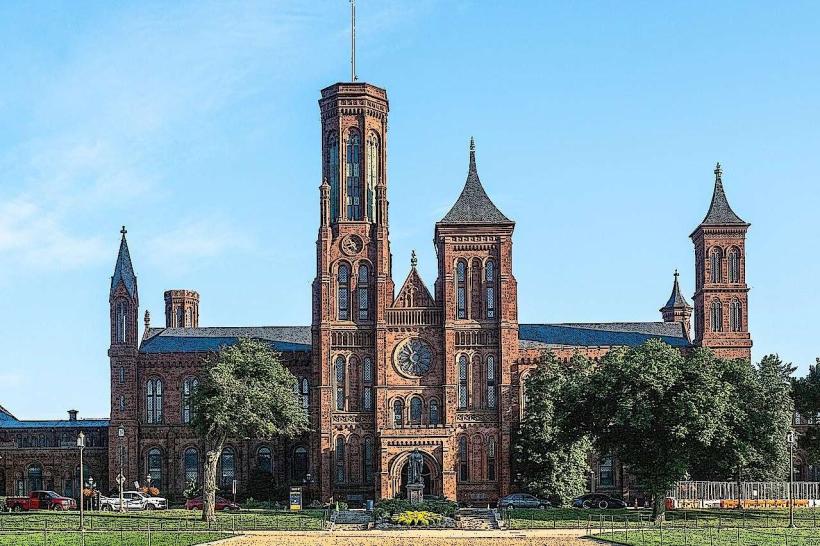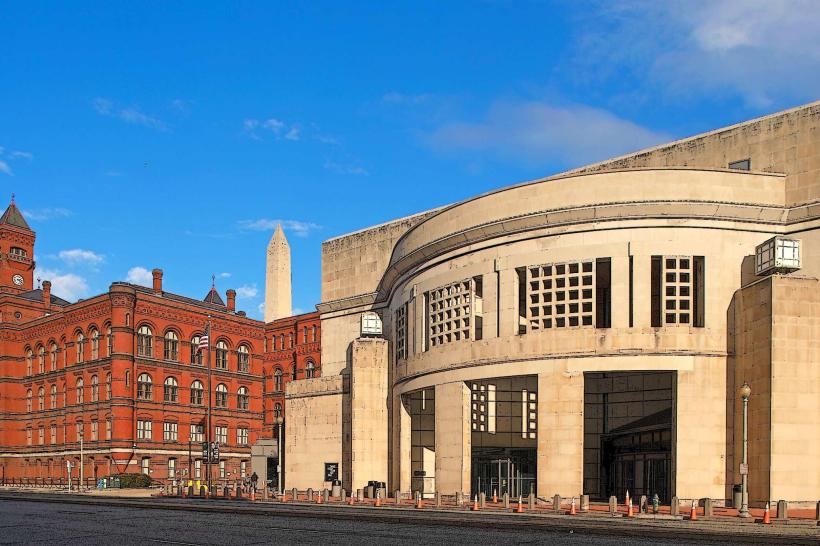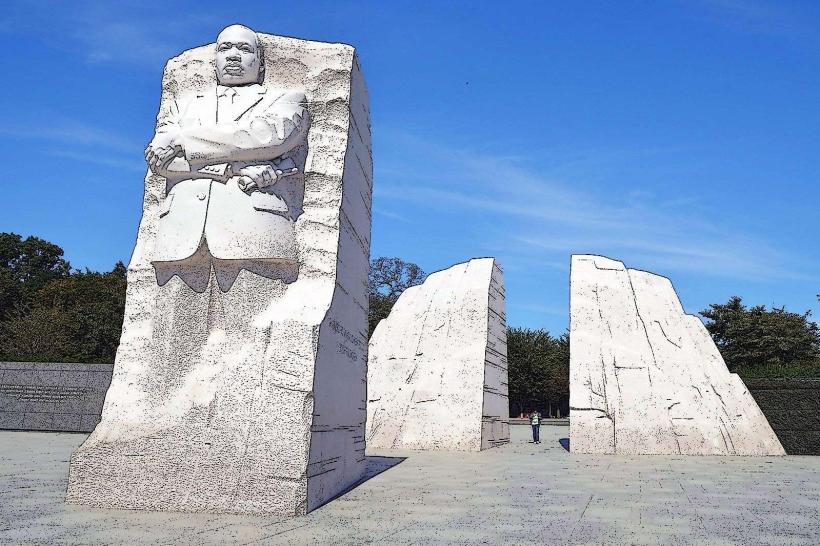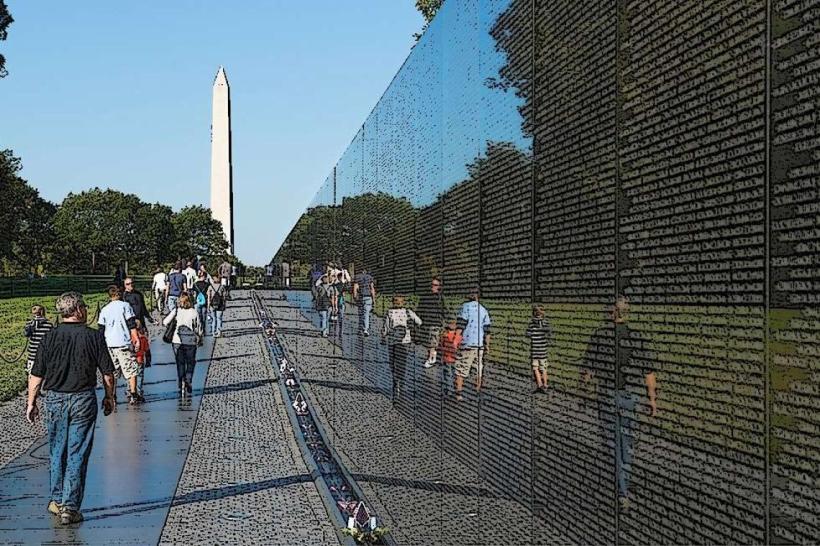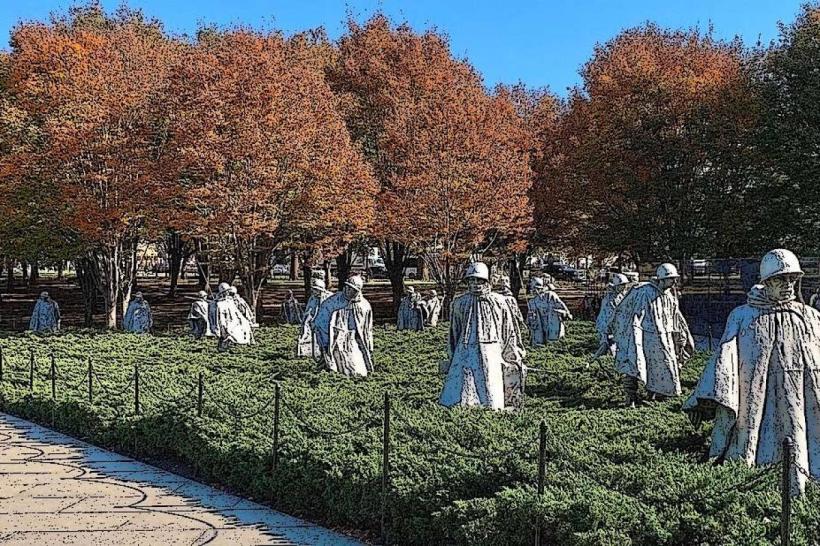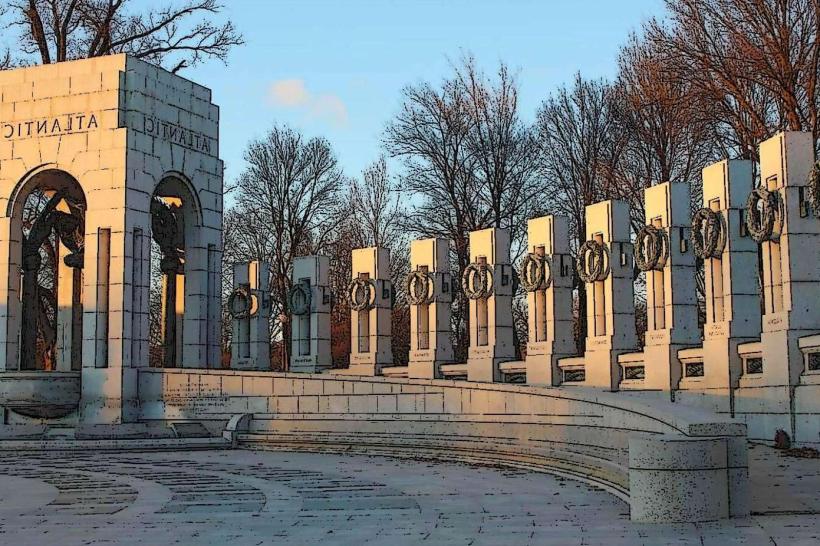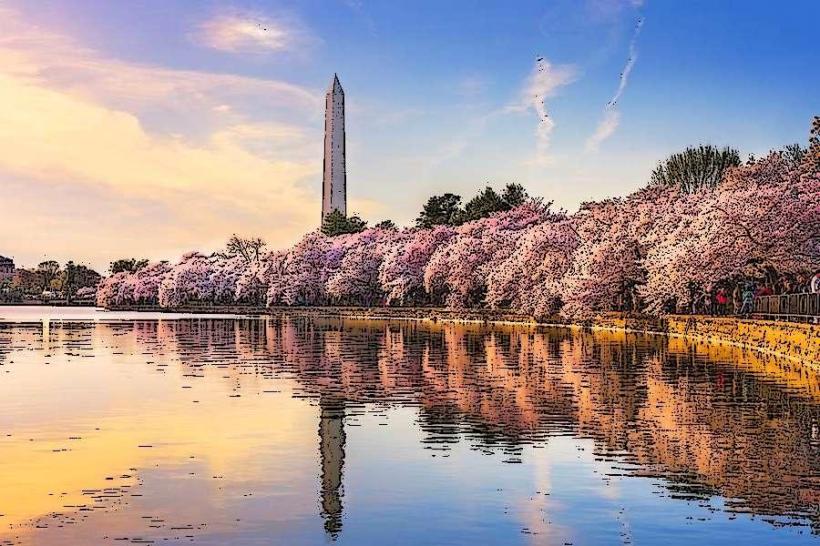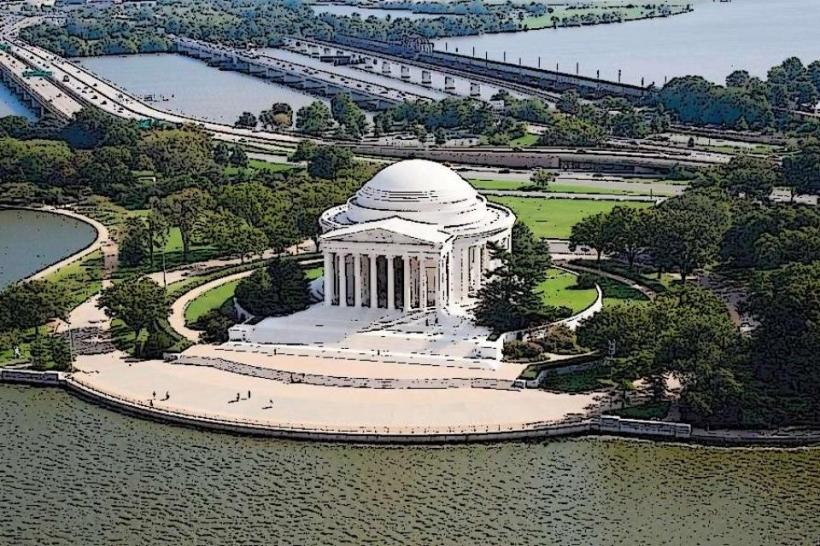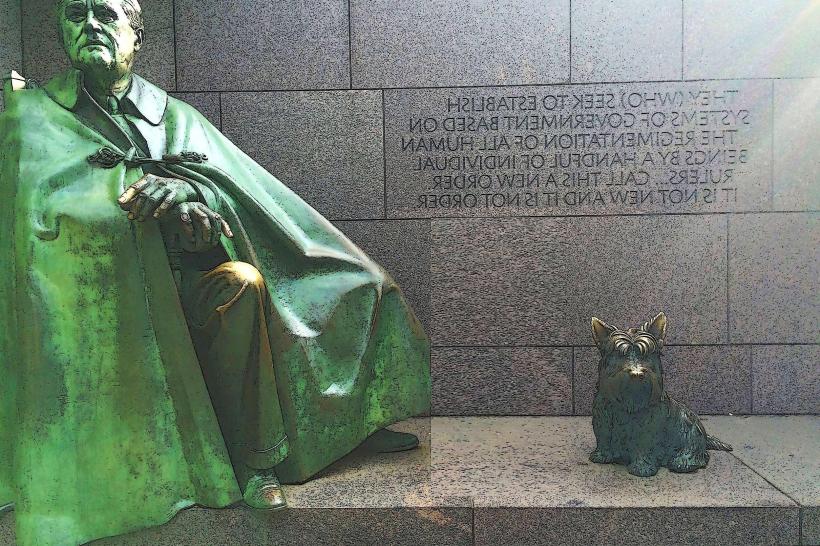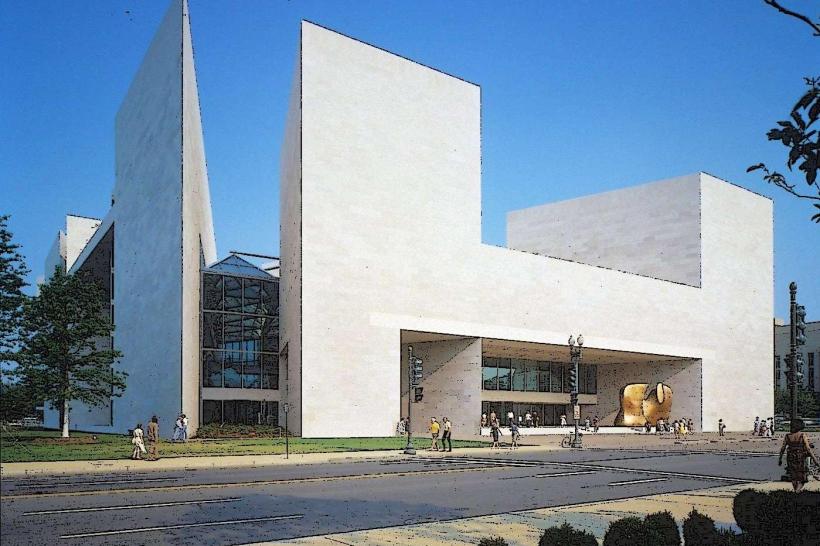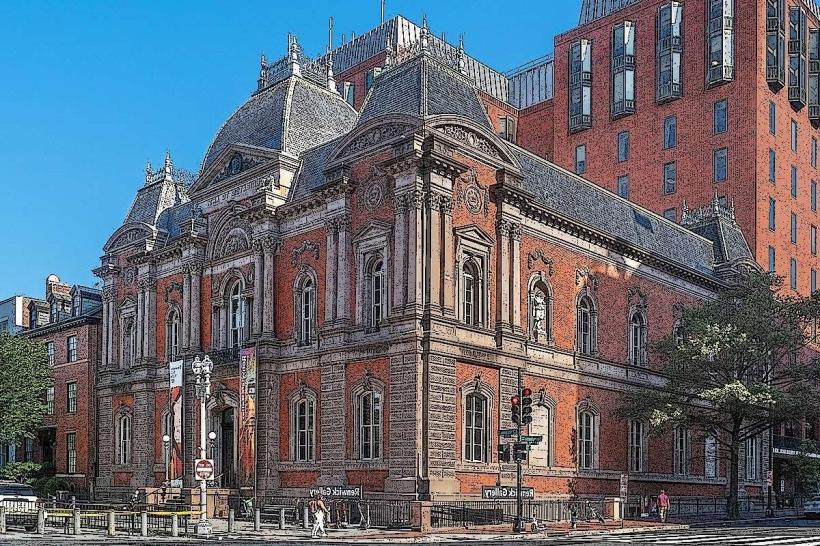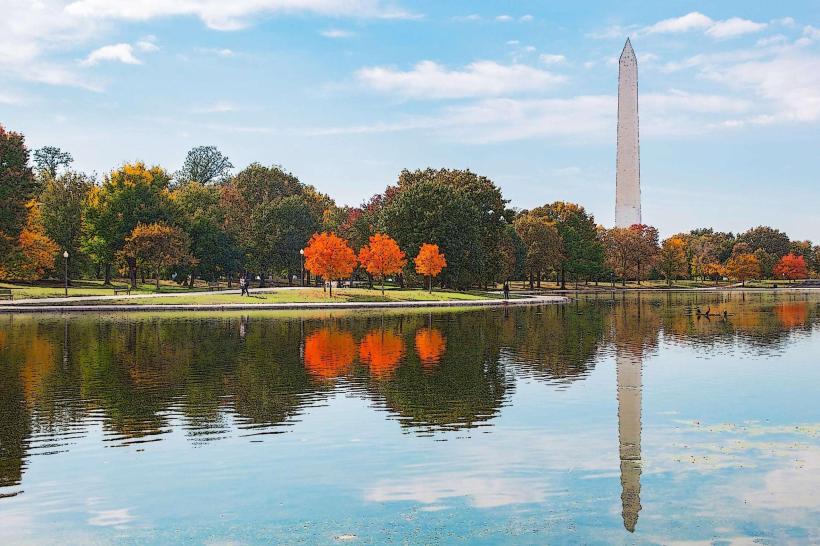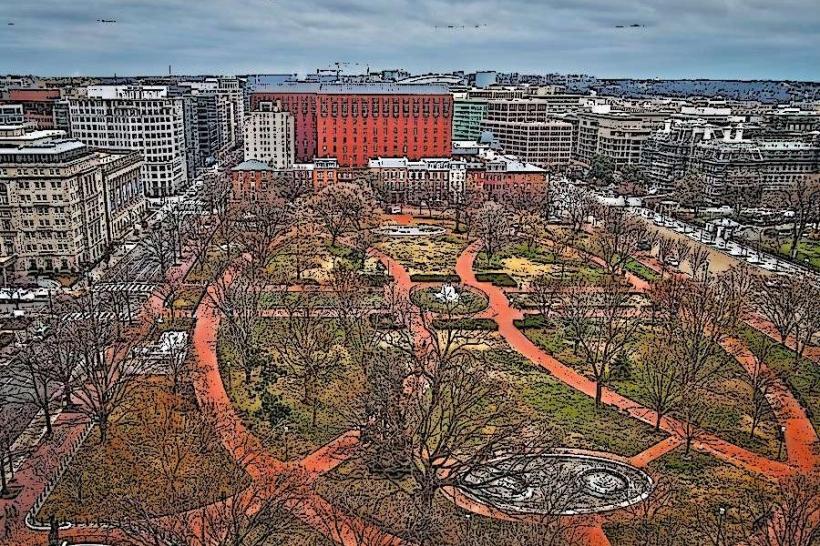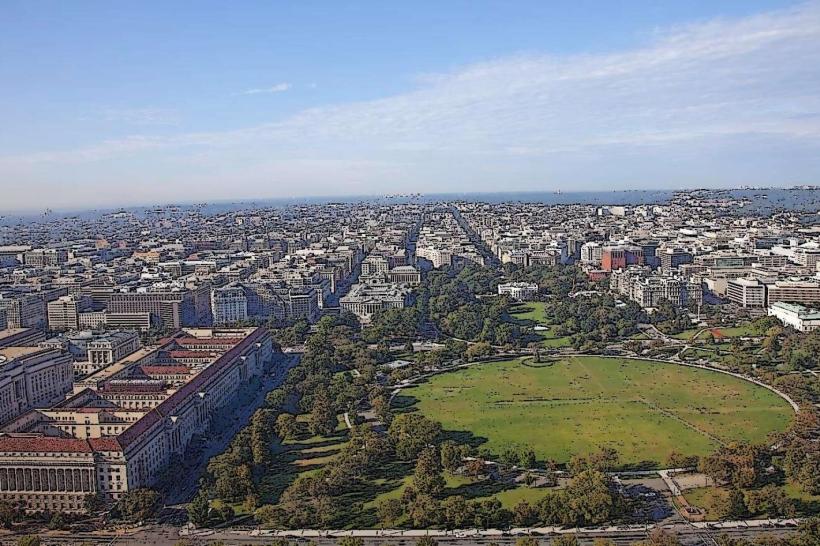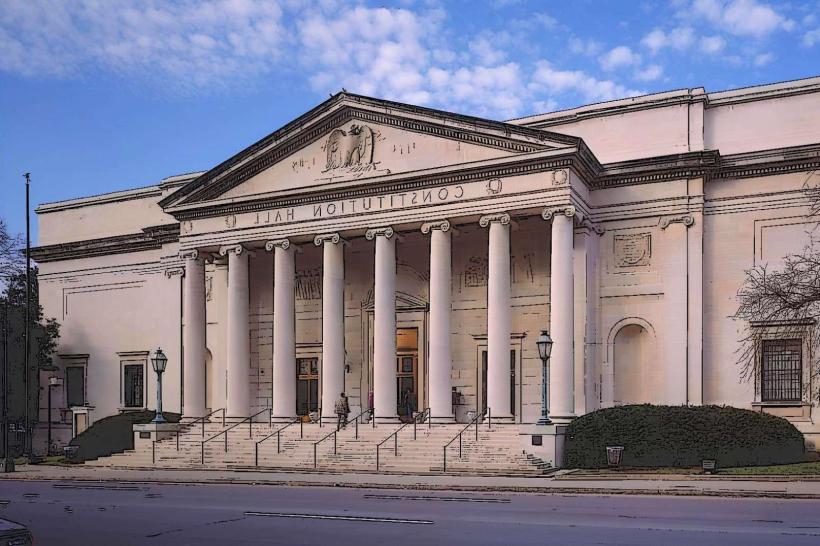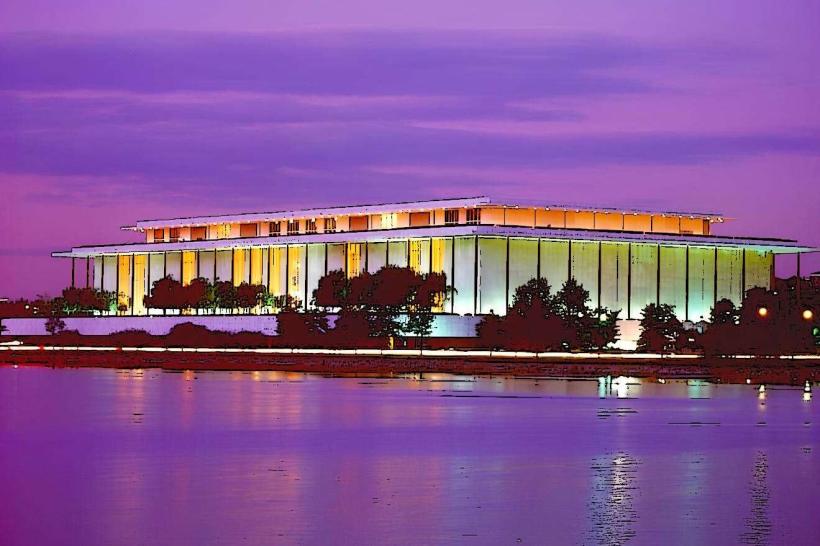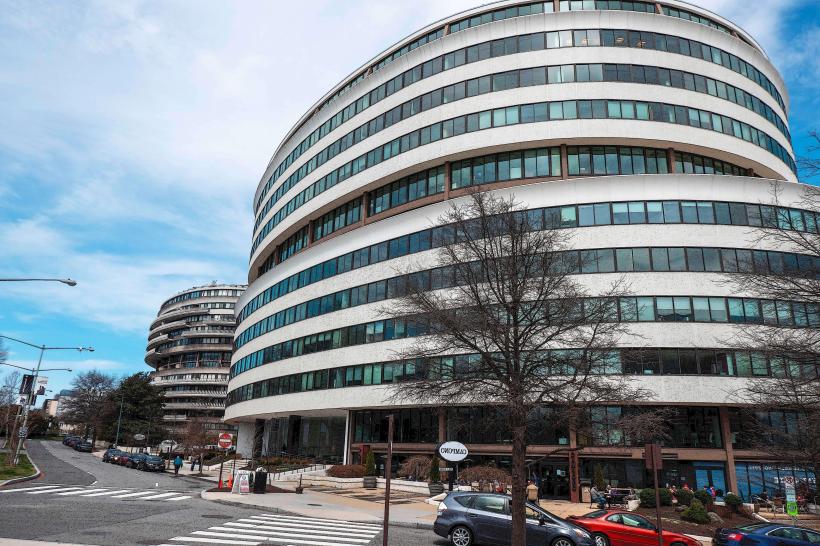Information
Landmark: Eisenhower Executive Office BuildingCity: Northwest Washington
Country: USA Washington DC
Continent: North America
Eisenhower Executive Office Building, Northwest Washington, USA Washington DC, North America
The Eisenhower Executive Office Building (EEOB) is a grand and historically significant structure located in the heart of Washington, D.C., adjacent to the White House. It serves as a key administrative office building for the Executive Office of the President of the United States and houses various important offices, including the Office of the Vice President.
Location and Context
Situated at 17th Street NW, between the White House and the Treasury Building.
Faces the White House’s west wing, making it part of the White House complex.
Located on Pennsylvania Avenue NW, often called "America's Main Street," linking major government landmarks.
Historical Background
Construction: Built between 1871 and 1888, originally known as the State, War, and Navy Building.
Designed to accommodate the growing staff of the Departments of State, War, and Navy, reflecting the expanding scope of federal government functions after the Civil War.
Renamed in 1999 in honor of President Dwight D. Eisenhower.
The building is a National Historic Landmark due to its architectural and historical significance.
Architectural Style and Design
Designed by architects Alfred B. Mullett and Thomas U. Walter.
Exemplifies the French Second Empire style, characterized by its elaborate ornamentation, mansard roofs, and grand scale.
The building’s exterior is constructed of Seneca sandstone, giving it a warm, reddish-brown appearance.
Notable for its dramatic mansard roofs, dormer windows, turrets, and elaborate cornices.
Contains extensive sculptural decoration including statues, gargoyles, and intricate ironwork.
Size and Layout
One of the largest office buildings in Washington, D.C., with over 566,000 square feet of floor space.
Contains more than 1,000 rooms spread across several floors.
The building’s U-shaped plan encloses a central courtyard, allowing natural light to penetrate interior offices.
Interiors feature lavish details such as marble staircases, ornate plasterwork, and rich wood paneling.
Functions and Usage
Originally served as the headquarters for the Departments of State, War, and Navy.
Currently houses:
The Office of the Vice President.
The Office of Management and Budget.
The National Security Council.
Various other executive branch offices supporting the President.
The EEOB is a vital nerve center for executive branch operations and policy coordination.
Architectural and Historical Significance
The building is widely considered a masterpiece of 19th-century American architecture.
Despite initial criticism and controversy over cost and style, it has become one of Washington’s most iconic historic buildings.
It reflects the era of rapid growth and modernization in the U.S. government during the post-Civil War period.
The EEOB’s lavish style contrasts sharply with the simpler, neoclassical design of the nearby White House, symbolizing evolving tastes and expanding government complexity.
Public Access and Tours
Public tours of the Eisenhower Executive Office Building are available by reservation through the White House Visitors Office.
Tours allow visitors to explore some of the historic rooms, including ceremonial spaces and offices.
Visitors can appreciate the building’s rich architectural details, artwork, and historical artifacts.
Photography inside is generally restricted to preserve the building’s security and dignity.
Surrounding Context
The EEOB sits across from the White House, forming a visual and functional counterpart in the White House complex.
Nearby landmarks include the Treasury Building, Lafayette Square, and the Old Executive Office Building courtyard.
Its prominent location underscores the central role it plays in the federal government.
Summary
The Eisenhower Executive Office Building is a magnificent and historic symbol of the American federal government’s growth and evolution in the late 19th century. Its striking French Second Empire architecture, vast size, and proximity to the White House make it both a visual landmark and an essential hub for executive branch administration. The EEOB continues to support critical governmental functions while standing as a testament to the nation's architectural ambition and political history.

